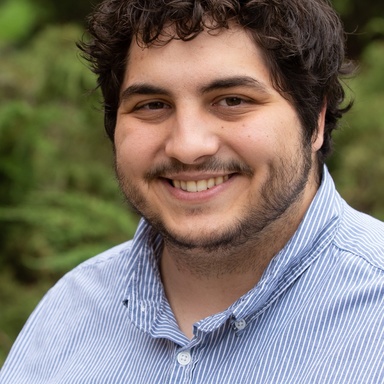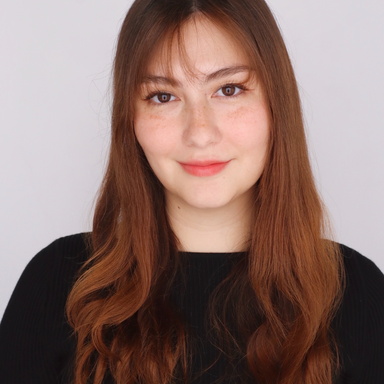Director
Eric J. Hunter, Ph.D., Professor & Department Chair
EMAIL
Eric Hunter serves as the Department Executive Officer in Iowa's Department of Communication Sciences and Disorders, along with the title of Harriet B. and Harold S. Brady Chair in Liberal Arts and Sciences. For the last 15 years, Dr. Hunter has researched occupational voice use, particularly examining voice disorders in elementary and secondary school teachers.
Dr. Hunter earned his bachelor’s and master’s degrees in Physics and Mathematics from Brigham Young University, with an emphasis in acoustics and vibration. His master’s thesis, which focused on designing and testing computer-generated visual aids, shifted his interest from general acoustics to speech acoustics. He completed his training in the area of speech science and received his doctorate from the University of Iowa. His dissertation topic used continuum mechanics to model vocal fold posturing.
Mark Berardi, Ph.D., Research Scientist
EMAIL

Mark Berardi's academic journey began in acoustical physics, with applications in music, speech, and architectural acoustics. He earned his PhD from Michigan State University's Department of Communicative Sciences and Disorders, where he developed models for aging voice, vocal effort related to communication demands, and vocal fatigue.
Following his doctoral studies, he completed a postdoctoral fellowship at the University Hospital Bonn (UKB) in Germany. Working in the Department of Psychiatry and Psychotherapy's Vocal Control and Vocal Well-Being lab (VoCoWell), he investigated the neurobiological and psychological factors associated with vocal fatigue in primary school teachers. During this time, he expanded his research scope, collaborating with UKB researchers to apply speech science and computational linguistics to psychiatric disorders such as major depressive disorder and schizophrenia.
A key focus of his work is the development of computational tools for large-scale speech and voice disorders research. By leveraging data science methodologies, he aims to advance more precise and personalized therapeutic care. His long-term research goal is to combine his diverse background in acoustics, computation, and neurobiology to deepen our understanding of the complexities of speech and voice production.
Maryann Krasko, PhD, MS, CF, Postdoctoral Research Scholar
EMAIL
Maryann N. Krasko, PhD, is a postdoctoral scholar in the Department of Otolaryngology at the University of Iowa Health Care and a clinical fellow in the Department of Communication Sciences and Disorders at the University of Iowa. She received her PhD from the University of Wisconsin-Madison, her MS from Columbia University, and her BS from New York University.
Krasko’s doctoral work investigated the pathogenesis of Parkinson disease, with a focus on early vulnerability in vagally mediated systems. Her research utilized a genetic model of prodromal Parkinson disease to map multisystem changes across voice, swallowing, gastrointestinal function, limb motor behaviors, and anxiety phenotypes, with an emphasis on identifying sex-specific vulnerability in the earliest stages of disease. Beyond these prodromal studies, she contributed to investigations of later-stage mechanisms and therapeutic interventions, including targeted vocal and tongue exercise paradigms, neuromuscular adaptations, and metabolic and neurotransmitter changes assessed through PET neuroimaging. She also contributed collaboratively to work characterizing early laryngeal and neuromuscular pathology in a transgenic model of Alzheimer’s disease.
As a postdoctoral researcher, she works with the Matthew Hoffman Research Lab (PI: Matthew Hoffman) and the Voice Biomechanics & Acoustics Lab (PI: Eric Hunter). Her research continues to investigate the biomechanical and aging-related changes in voice, swallowing, and respiration across diverse populations, integrating endoscopy, aerodynamic and acoustic measures, electroglottography, respiratory assessment, and cough evaluation to elucidate the mechanisms of upper airway function and their modulation by targeted interventions.
Krasko's scholarship has been recognized with competitive funding and awards, including an NIH NIDCD F31 Grant; the Vicki Lord Larson & James R. Larson Research Grant (Wisconsin Speech-Language Pathology and Audiology Association, 2025); the New Century Scholars Doctoral Scholarship (American Speech-Language-Hearing Foundation, 2023); the New Investigator Award (2nd place, Dysphagia Research Society, 2024); and the Podium Presentation Award (2nd place, Dysphagia Research Society, 2021 and 2025).
Hannah Rigler, MA CCC-SLP, Clinical Research Coordinator
EMAIL

Hannah Rigler holds a Master of Arts in Speech Pathology and an undergraduate degree in Spanish and Speech and Hearing Science, both from the University of Iowa. She began her career as a research assistant studying speech and language processing in adolescents with language impairment and individuals with cochlear implants across pediatric and adult populations.
Hannah gained extensive clinical experience in pediatric outpatient rehabilitation, advancing to serve as clinical team lead at a dynamic pediatric clinic. She also worked at a start-up company that developed specialized sensors enabling acute care patients to access nurse call systems and speech generating devices.
Currently, Hannah supports research efforts at VBAL, focusing on occupational voice users and clinical interventions for adults with swallowing impairments.
PhD Students
Adrián Castillo-Allendes M.Sc., SLP
EMAIL
Adrián Castillo-Allendes is a Fulbright scholar, Speech-Language Pathologist and MSc in Clinical Exercise Physiology from Universidad Mayor in Santiago, Chile. He holds professional certifications in Vocal Rehabilitation, Research Methods, and Teaching for Higher Education. With over 15 years of experience, he has worked extensively with individuals facing voice disorders, including professional voice users and those with Parkinson's disease, in various clinical settings.
Currently, Adrián is a PhD candidate in Communication Sciences and Disorders at Michigan State University. He also serves as a research fellow at the Vocal Biomechanics and Acoustics Laboratory (VBAL), led by his mentor, Dr. Eric Hunter, at the University of Iowa. His research interests focus on interdisciplinary therapy, comprehensive assessment for individuals with voice and swallowing disorders, and biomechanics related to both functions. Adrián's research is advanced by support from the Charles J. Strosacker Foundation Research Fund for Health and Risk Communication at MSU, and the Career Development Program fellowship from the Dysphagia Research Society (DRS). He has also been awarded the Graduate Student Fellowship by the American Speech-Language-Hearing Foundation (ASHFoundation).
Chia-Hsin Wu, MS, SLP
EMAIL
Chia-Hsin Wu joined the Voice Biomechanics and Acoustics Lab as a Ph.D. student in Speech and Hearing Science in August 2024. Prior to embarking on her Ph.D. journey, she worked as a speech-language pathologist in Taiwan. Her interest in voice studies began with her master's thesis on a Semi-Occluded Vocal Tract (SOVT) exercise program for older adults. Chia-Hsin is keenly interested in both basic and clinical science, particularly in voice physiology, acoustic analysis, and therapeutic strategies. She is especially interested in research involving the elderly and professional voice users.
Fernanda Figueroa, MSc., SLP
EMAIL

Fernanda is a Speech and Language Pathologist (SLP) and Audiologist from Santiago, Chile. She earned her professional SLP degree from Pontificia Universidad Católica de Chile and a Master of Science in Speech and Language from the University of Chile, where she researched the effects of hypernasality on perceptual judgments. Additionally, she has over five years of clinical experience treating and training both professional and occupational voice users.
Currently, she is a Research Assistant and doctoral student specializing in speech and voice sciences. Her research focuses on vocal fatigue, vocal performance, and the development of innovative tools for assessing and monitoring voice in challenging contexts. She combines expertise in experimental design, acoustic analysis, and survey methodology to investigate how vocal demands, environments, and behaviors impact the voice. Her work aims to advance our understanding of vocal health and promote translational applications to real-world settings.